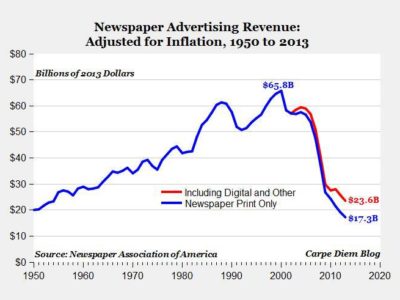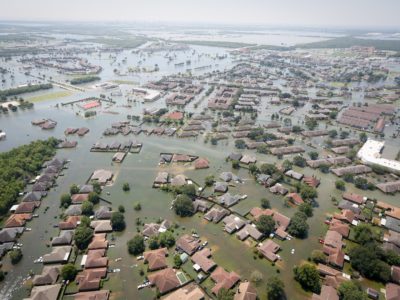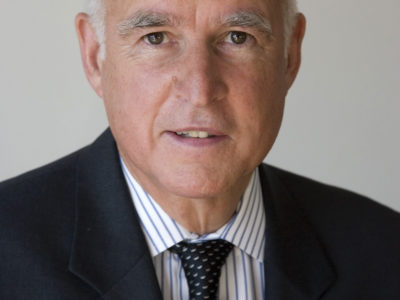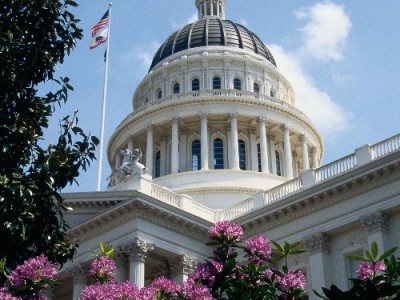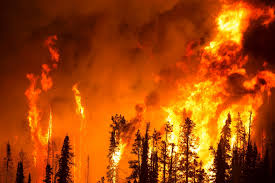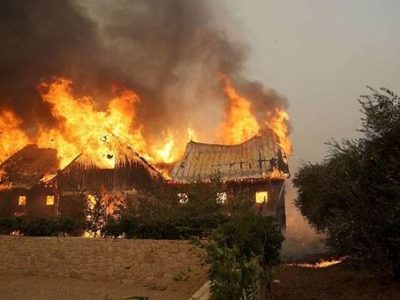Disasters
Goodbye, Cleveland!
Newspaper Collapse Threatens The Environment: Universities Need To Fill The Gap
In 1970, Cleveland’s Cuyahoga River famously caught fire. This past week, we have seen an even worse environmental disaster for the city: The Plain Dealer on Monday laid off 14 newsroom employees as part of a staff reduction first announced in December. The 14, most of them reporters and all members of Local 1 of …
Continue reading “Goodbye, Cleveland!”
CONTINUE READINGCoastal Communities Demand EPA Update Decades-Old Oil Spill Regulations
Written in Collaboration with Camila Gonzalez*
Coastal communities are bracing themselves. Thirty years after the Exxon Valdez oil spill in Alaska, and almost nine years after the BP Deepwater Horizon rig explosion in the Gulf of Mexico, they are facing the threat of another catastrophic oil spill. The Trump Administration is paving the way. The Bureau of Ocean Energy Management will …
Continue reading “Coastal Communities Demand EPA Update Decades-Old Oil Spill Regulations”
CONTINUE READINGNational Security, Climate Change, and Emergency Declarations
If the Supreme Court upholds Trump, it will have to uphold an emergency declaration for climate change.
Trump finally pulled the trigger today and declared a national emergency so he can build his wall. But if illegal border crossings are a national emergency, then there’s a strong case for viewing climate change in similar terms. That point has been made by observers ranging from Marco Rubio to Legal Planet’s own Jonathan Zasloff …
Continue reading “National Security, Climate Change, and Emergency Declarations”
CONTINUE READINGI’ll Just Be Over Here In My Fallout Shelter
The Green New Deal may be ambitious, but it’s not alarmist.
It would be impossible to react to every piece of misinformation or poor reporting about climate change—let alone every misguided opinion editorial—that lives online today, but Bret Stephens’ February 15 piece in the New York Times strikes me as warranting a response. That’s not because of the clickbait title (“Is Nancy Pelosi A Climate Skeptic?” …
Continue reading “I’ll Just Be Over Here In My Fallout Shelter”
CONTINUE READINGCommemorating a Major Environmental Disaster–One With a Transformative Legacy
1969 Santa Barbara Oil Spill Sparked the Beginning of America’s Modern Environmental Era
This week marks the 50th anniversary of one of the most serious and consequential environmental disasters in American history–the Santa Barbara offshore oil spill of 1969. On January 28, 1969, an offshore oil rig (Platform A) owned and operated by the Union Oil Company and operating in federally-controlled waters in the Santa Barbara Channel off …
Continue reading “Commemorating a Major Environmental Disaster–One With a Transformative Legacy”
CONTINUE READINGAssessing–and Celebrating–California Governor Jerry Brown’s Environmental Legacy
Governor Brown Easily Ranks as the Top Environmental Governor in State History
Don’t it always seem to go That you don’t know what you’ve got `Til it’s gone –Joni Mitchell (“Big Yellow Taxi”) On this, the last day of Jerry Brown‘s tenure as California’s governor, it’s appropriate to reflect on Governor Brown’s environmental legacy. And a most formidable legacy it’s been. Brown has, quite …
Continue reading “Assessing–and Celebrating–California Governor Jerry Brown’s Environmental Legacy”
CONTINUE READINGRecommendations For Governor-Elect Newsom To Address Wildfire, Water, & Climate and Transportation Threats
New CLEE and Resources Legacy Fund report based on three expert convenings
Climate change exacerbates the droughts, floods, and wildfires that Californians now regularly experience, making them even more extreme and unpredictable. Gavin Newsom, California’s next governor, faces the urgent challenge of simultaneously preparing for inevitable disaster, improving the quality of life for residents, and minimizing the greenhouse gas emissions of a society of nearly 40 million …
CONTINUE READINGWildfires: Managing the Risks
How can we limit the spread of wildfires and save people and property?
Wildfires are already a serious problem, and climate change will only make the problem worse, as I’ve discussed in my two prior posts. Reducing carbon emissions can help keep the problem from growing, but we need to deal with the risks we’re already facing. That is going to require a portfolio of risk management strategies. We …
Continue reading “Wildfires: Managing the Risks”
CONTINUE READINGBurning in the Heat
Wildfires were bad enough already. Climate change is making them worse.
Fires have been unusually severe lately. According to one scientist, “’[I]n the late 20th and early 21st century, with these hot droughts, fires are ripping now with a severity and ferocity that’s unprecedented,’ says Tom Swetnam. . . . A fire in the Jemez Mountains Swetnam studies burned 40,000 acres in 12 hours, a ‘horizontal …
Continue reading “Burning in the Heat”
CONTINUE READINGSpreading Like Wildfire
They don’t get as much attention as floods or earthquakes, but wildfires are deadly serious.
This is the first of a three-part series about wildfires. Massive wildfires are a growing problem, posing risks to people and the environment. Considering that my house is located only a few miles from the 1991 Oakland Hills fire, which killed 25 people, destroyed 2800 homes, and caused $1.8 billion in damage, this is an …
Continue reading “Spreading Like Wildfire”
CONTINUE READING



